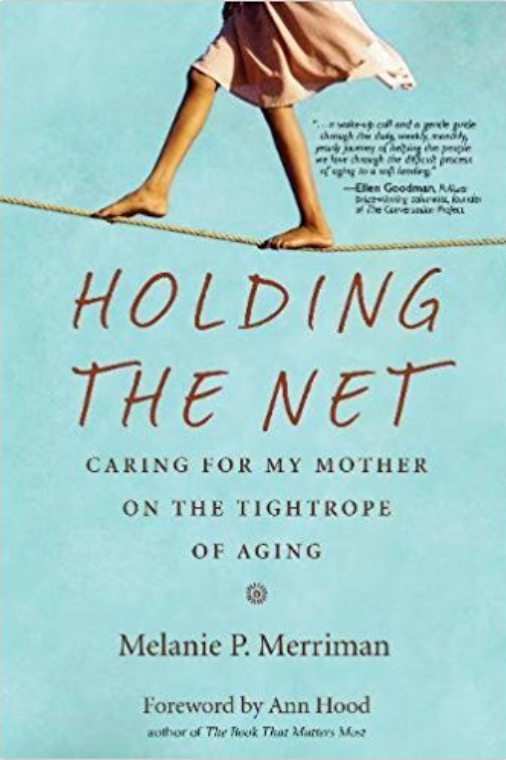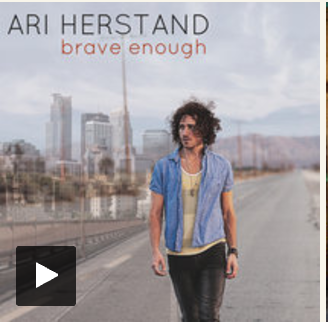By Karen Collazo
Each one of my addictions provides its own unique high. Shoplifting gives me a real sense of accomplishment. For days afterwards, I marvel at my collection of stolen goods and I’m filled with pride. I feel smart and slick and vindicated for having taken something that this world owes me. Binge-eating suppresses my anxiety. When I sit down and stuff an entire bag of Cheese Doodles down my throat, I’m focused on a specific task, with a straightforward end in sight, blocking out all the other noise. There is but one thing on my mind and that is to pick up the next doodle, and then the next, and then the next—until I’m staring at the bottom of an empty bag that is covered in orange cheese flakes. This act refocuses my attention away from the thing that is causing me to panic. Cocaine makes me confident. One bump and I’m the smartest, hottest and funniest person in that room. Another bump and my ideas are the fucking best. Sex is about control. I hold the dial between my legs and I get to choose how much pleasure you’ll enjoy. And when they beg for it, my ego floats high above our heads. I can only cum when I’m looking down at a puny man that moans for more.
From an intellectual standpoint, I understand that these are unhealthy coping mechanisms that I need to quit. These are dangerous and harmful ways to avoid life on life’s terms. But there is one addiction I have yet to share with you that I refuse to stop giving into. It is an obsession that infinitely outweighs the overwhelming need to binge-drink, shoplift, snort an eight ball of coke or eat a whole box of Swiss Cake Rolls in one sitting. It was eighteen years ago when I had my first taste. And since then, I’ve found myself time and time again leaping beyond my perverse limits for just a second of the most irresistible indulgence I’ve ever experienced. For a long time, I was confused about my desire and what it achieved for me. But now that I’ve begun my journey of recovery, I have a better sense of what it is and why I seek it out with such fervor. The one drug I won’t give up is Him.
We met late in high school. It wasn’t until the 11th grade that our paths crossed. I had gone to another school nearby, but due to a falling out with friends—after an unfortunate event at a party, I decided to transfer. I had gone from the popular preppy girl to an emotionally disturbed punk rock teen in the span of one summer, and was now looking forward to reintroducing this new poetic and misunderstood version of myself to the world. It was my first day at my new school, when a practice fire drill during fourth period Journalism thrust all the students out into the sweltering August heat. I was wearing the required uniform of the time: wide-legged Jnco jeans, a washed-out thrift store baseball tee, black combat boots, a Claire’s beaded choker and Manic Panic cotton candy pink streaks in my jet-black curly hair. A tall brunette approached me excitedly.
“Hey, aren’t you that girl from the Montel Williams show?” she asked.
“Uhh, no… I think you have the wrong person,” I said.
She laughed it off and suddenly I found myself being pulled through the crowd towards The Tree, a shaded corner across the street from the school where all the rocker kids lounged under an old pepper tree—before, during and after school. She quickly introduced me to her misfit friends as the girl she just confused for the one on the Montel Williams show and I thought: well, it could be worse. The group that had gathered was debating what to do for the weekend when someone mentioned there was going to be a show.
At the time, the music scene in our town was tiny. Indie rock bands played to small overexcited crowds, in whatever space they could find. Most weekends, kids stood around listening to live music in old-timey wood-paneled and carpeted pool halls, makeshift indoor skate parks and warehouses that housed ice cream trucks by night and future rock stars by day. You knew there was a show coming up only by the cheap black-and-white flyers that were passed out at the event you were currently attending. They were simple ads—usually listed band names like, a time, a place and a rough hand-drawn sketch of a nun bent over while a priest takes her from behind.
The first time I interacted with Him was at a hole-in-the-wall bar that was command central for the local rockers. At the time, the neighborhood was very sketchy. You had to tip the homeless guy on the corner to “keep an eye” on your car, which was parked on the side of the street. If you didn’t throw the guy a couple of bucks, he would look the other way if someone tried to break into it. The place was grungy, but the bartenders never carded and they called you “sweetheart” and “darling” when asking: “What’ll you be havin’?”
The boy was tall, skinny, pale and shy. He stood around cracking stupid jokes with his friends, but didn’t really say much else. He called me “rosy cheeks,” handed me a demo of his band and asked if I wanted a beer. He was cute and his smile was genuine. It might have been the way he threw a glance in my direction every so often, as though he was trying to make a decision, which caught my initial attention. But it was his emotional intelligence that ultimately did me in. I crushed hard for years and then he became just another addiction.
It wasn’t long after the 11th grade started that a close-knit group of us all became very good friends. We shared a common love of music and an open optimism for life beyond what we knew. We felt bigger than our town. We lived for each other and the weekends, when we would steal away and enjoy the life of a rebellious teenager's dream. We skipped school to watch scary movies that I borrowed from my part-time job at Blockbuster. We hung out on the beach. We drank beers in empty parking lots, while listening to Sunny Day Real Estate. On Sundays, we snuck into clubs, where we danced to Depeche Mode and made fun of the Goth kids. When the weather was nice, we’d pack into my two-door Toyota Tercel and drive out to my parent's beach place to get high on weed and roll on ecstasy. When any one of our parents went away on vacation, we’d take over that friend’s empty house and throw bacchanalia-style get-togethers. We were friends, lovers and family. Young and free, surrounded by my new friends, I felt safe, understood and loved. Life had yet to burden me with the death of my parents, debt and true heartache. I was so lucky then and didn’t know it.
When I look back at the happiest point in my life, I’m transported to the summer of 1998. I’m seventeen and six of us have all drifted off to sleep, laid out across the couches and beds in my 3-bedroom house. My parents are in Cuba for the next two weeks and I have the whole place to myself. Earlier that night we had killed two bottles of tequila, a 24-pack of beer and smoked tons of pot. We danced like idiots, took silly pictures and cracked jokes at each other’s expense. The sun was beginning to rise and there was Nagchampa incense from the local Hare Krishna temple wafting through the air. Somewhere in the background, The Cure’s “Lovesong” is playing.
It’s just us two. We’re lying on my parents’ king-sized bed, which is covered in a bright sunflower-patterned duvet. The blinds are halfway open. The cool morning sun is creeping in. We’re spooning and fully clothed when he asks me to give him cosquillita to help him fall asleep. This is the first time that we are alone together. My fingers tremble as they make small circles on his back, under his shirt. I tune into his breathing and wonder if he could tell how nervous and excited I am to be lying next to him. Then, I slowly slide my arm around to his front—to lightly caress his flat stomach. His breathing remains steady, while mine becomes labored, as my fingers trace the trail between his belly button and the elastic band of his boxers. Then my pinky grazes the head of his cock...
When a junkie indulges in addictive behavior, they are always chasing that first high. There is nothing like your first. Over time, it just doesn’t feel the same and you eventually require inordinate amounts of the substance to barely gratify the intense urges that beg for relief. But every hit after your first, no matter how big, will never compare. Chasing that dream is how you find yourself hitting rock bottom. And from that place is where you can begin to recover. The problem with my addiction to Him, is that it's bottomless.
When I lived in New York, he came into town a handful of times. Beforehand, we’d make plans to see each other—texting feverishly about all the dirty things we were going to do to one another when we were finally face-to-face and alone, in my apartment. But, I never did keep my promise and left my phone unanswered for days. His presence was too much for me to handle. The two worlds did not fit on one island. I had left Miami to escape my ghosts and he was a haunting reminder of life before cancer. But on my yearly trips back to Miami for the holidays, I sought Him out anxiously. Having Him took away the stress of being back home and made visits with my extended family bearable.
Over the years, our physical connection evolved. The sex got better, hotter, more intense and extremely depraved. While the ability to reach orgasm has always been exciting in and of itself, for me it has always been more than just sex. Fucking Him is a journey back in time—to a moment in history when I was inexperienced, full of dreams and could never imagine the battle that would wage inside and torment me for years to come. When his lips touch mine and I’m full of him, I’m transported to the summer of 1998.
Over the years, we’ve tested the limits of degeneracy by outdoing our last encounter. We’ve stayed in dirty cheap motel rooms on, driven to dangerous neighborhoods for drugs and have been careless in many other ways. When we saw each other last year, I did $200 worth of coke and Molly in one night and then we fucked for 12 hours. It was exhilarating, filled my deviant soul and took me where I wanted to go: away. At the time, I needed to be transported to that moment and place. I had just moved back to Miami and the demons I thought I had left behind were patiently waiting for my return. I wanted to run so badly, but I got high off Him instead. Then, like when I’m coming off a coke high, when I couldn’t have more of Him I lost my shit. I spiraled out of control and found myself trapped in that place all addicts succumb to when the drugs have run out and you have no more money.
Some days, I wish that my desire would have remained as innocent as it once was; a simple high school crush. Unfortunately, it became another one of my sick afflictions and probably the most dangerous, because I've never had a bad trip. Each time I’m with Him, I reach new levels of high. Quitting Him is just not an option. Living clean would mean erasing a memory that I never want to let go. It means losing that place that once existed, where my parents will be back from Cuba in two weeks and I am safe and loved.














